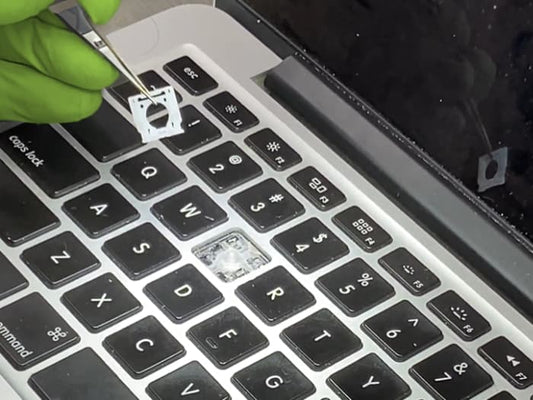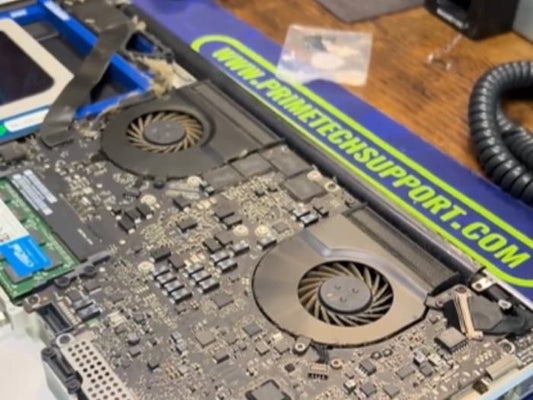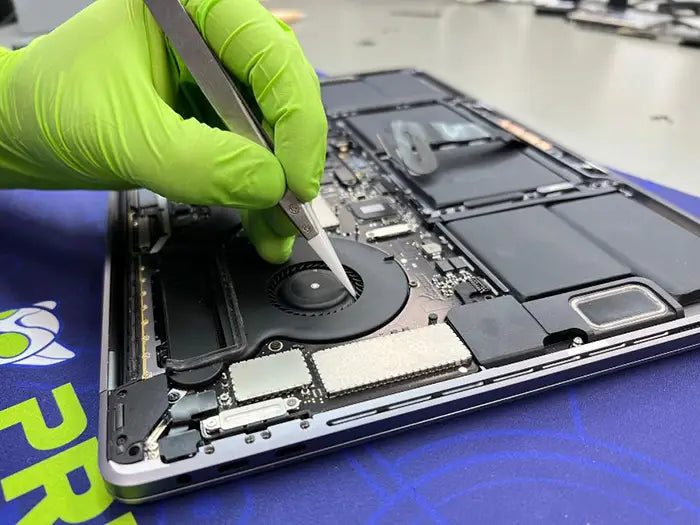Traveling with Lithium Batteries: A 2024 Guide to Safe Air Travel
Power Up Your Journey: The Essential Guide to Flying with Lithium Batteries in 2024
Introduction
In today's tech-driven world, traveling without our electronic devices seems unimaginable. Whether it's for capturing memories on a camera, staying connected via a smartphone, or keeping up with work on a laptop, our gadgets are essential travel companions. However, the lithium batteries that power these devices come with specific air travel regulations. This guide dives deep into the FAA's 2024 regulations for flying with lithium batteries, ensuring you're well-prepared for a seamless travel experience.
In an age where technology seamlessly integrates into every aspect of our lives, knowing how to safely travel with our devices and their lithium batteries is crucial. From smartphones to laptops, and from cameras to wearables, understanding the guidelines for lithium batteries on flights can make your travel experience smoother and safer. This comprehensive guide breaks down the FAA's current regulations, ensuring your gadgets are good to go, whether you're flying domestically or internationally.
Why Are Lithium Batteries Regulated for Air Travel?
Lithium batteries are capable of storing a significant amount of energy in a small package. While this is beneficial for device longevity and efficiency, it also poses potential risks, particularly fire hazards if the batteries are damaged, defective, or improperly handled. In rare cases, lithium batteries can overheat and catch fire. Such incidents, known as thermal runaway, can be difficult to extinguish and pose significant safety risks onboard an aircraft.
Key Regulations for Lithium Batteries During Air Travel
The Federal Aviation Administration (FAA) and international regulatory bodies have established guidelines to mitigate the risks associated with transporting lithium batteries:
Watt-Hour (Wh) Rating Restrictions:
Batteries installed in devices and spare batteries with a capacity of 100 Wh or less are generally allowed in both carry-on and checked luggage.
Spare batteries (both lithium ion and lithium metal), as well as external battery chargers, must only be carried in carry-on luggage to ensure they remain under passenger supervision.
Approval for Higher Capacity Batteries:
For batteries with a capacity between 101 and 160 Wh, travelers can bring them onboard with airline approval, typically limited to two spare batteries per passenger. These are often used in professional equipment or extended-life laptop batteries.
Packing and Protection:
To prevent short circuits, all spare batteries must be properly protected. This can involve placing them in original retail packaging, using a battery case, or taping over the terminals.
Prohibitions and Exceptions:
Batteries exceeding 160 Wh and lithium metal batteries containing more than 2 grams of lithium are prohibited on passenger aircraft.
Special provisions apply for mobility aids, medical devices, and other equipment essential for a passenger's health and well-being, subject to airline approval.
Let's see if your battery is Travel-Ready
Travel Tips for Flying with Lithium Batteries

- Pre-Travel Preparation: Check each device and spare battery for its Wh rating (usually found on the battery itself or the device’s specification sheet) and ensure it complies with the regulations.
- Airline Communication: Prior to flying, contact your airline to confirm their specific policies on lithium batteries, especially if you're carrying batteries in the 101–160 Wh range.
- Device Management: For devices in checked luggage, turn them off (not just in sleep or hibernation mode) to prevent unintentional activation. Pack them securely to protect against damage.
Check your battery for Mac devices when traveling.
Introduction to Lithium Batteries in Air Travel:
Lithium batteries, found in most portable electronic devices, are favored for their efficiency and capacity. However, due to their chemical composition, they require special considerations when flying. This article provides an up-to-date overview of how to navigate these regulations, ensuring your devices are both ready and compliant.
Guidelines for Lithium Batteries with 100 Watt Hours or Less:
Carry-On Bags: Yes.
Checked Bags: Yes, but with special instructions.
Key Points: Spare lithium ion and lithium metal batteries, including power banks and cell phone battery charging cases, must be carried in carry-on luggage. Lithium metal batteries are capped at 2 grams of lithium per battery, while lithium ion batteries must not exceed 100 watt hours (Wh) per battery.
This segment of the FAA's guidelines accommodates almost all consumer-grade lithium batteries, ensuring your everyday devices remain powered.
Guidelines for Lithium Batteries Over 100 Watt Hours:
Carry-On Bags: Yes, with special permissions.
Checked Bags: No.
Specifics: Travelers may carry up to two spare larger lithium ion batteries (101–160 Wh) or lithium metal batteries (2-8 grams) with airline approval. This provision mainly covers after-market extended-life batteries for laptops and professional AV equipment.
Practical Tips for Traveling with Lithium Batteries:
- Always check with your airline for any specific guidelines or restrictions.
- Ensure all spare batteries are protected to prevent short circuits (e.g., by keeping them in original retail packaging or by taping over the terminals).
- For devices in checked baggage, make sure they are completely switched off and protected against damage.
Stay Powered and Prepared
For travelers looking to navigate air travel with their essential devices, understanding and adhering to lithium battery regulations is not just about compliance—it's about contributing to a safer flying environment for everyone. Whether you're a frequent flyer or planning your next vacation, take the initiative to stay informed about the latest guidelines from the Federal Aviation Administration (FAA) and your chosen airline.
Before you pack your bags double-check your devices and spare batteries to ensure they meet current air travel standards. And remember, when in doubt, reach out to your airline for clarification. Your efforts to fly responsibly with lithium batteries not only protect your devices but also safeguard the well-being of all passengers and crew aboard. So, power up your journey the right way—by staying powered and prepared, you're on track for a hassle-free flight.
Check your Mac device's battery before traveling.
FAQ: Frequent Questions

Can I carry lithium batteries in my carry-on luggage? A1: Yes, lithium batteries with 100 watt hours (Wh) or less in a device can be carried in both carry-on and checked bags. However, spare (uninstalled) lithium batteries must be carried in carry-on baggage only.
Are there any restrictions on lithium batteries in checked luggage?
Yes, while devices with lithium batteries within the 100 Wh limit are allowed in checked luggage, spare lithium batteries cannot be checked in and must be carried in your carry-on luggage. Special instructions may apply, so check with your airline.
What about lithium batteries over 100 watt hours?
Lithium batteries exceeding 100 Wh but not more than 160 Wh require airline approval to be carried in carry-on baggage and are limited to two spare batteries per person. These cannot be placed in checked luggage.
How should I pack my spare lithium batteries for air travel?
Spare lithium batteries should be individually protected to prevent short circuits. This can be achieved by placing them in original retail packaging, using a battery case, or taping over the terminals. Always carry them in your carry-on luggage.
Can I bring a power bank on the plane?
Yes, power banks, which are considered spare lithium batteries, must be carried in your carry-on luggage. They are subject to the same restrictions as other spare batteries (100 Wh limit or airline approval for 101–160 Wh).
What if my electronic device has a non-removable lithium battery?
Devices with non-removable lithium batteries can be carried in both checked and carry-on luggage, provided the battery does not exceed 100 Wh. Ensure the device is turned off and adequately protected if placed in checked luggage.
Are there any lithium battery types that cannot be brought on a plane?
Lithium metal batteries with more than 2 grams of lithium and lithium ion batteries exceeding 160 Wh are generally prohibited from air travel. Always check current regulations and airline policies, as exceptions may apply.
What should I do if my device or battery is damaged, defective, or recalled?
Damaged, defective, or recalled batteries and devices pose safety risks and should not be carried on an aircraft. Contact the manufacturer for disposal instructions and replacement options before you travel.
Can I travel with electronic cigarettes and vaping devices?
E-cigarettes and vaping devices, powered by lithium batteries, must be carried in carry-on luggage only. They are not allowed in checked baggage, and using them on board the aircraft is prohibited.
Where can I find more information about traveling with batteries?
For the most current guidelines and detailed information, visit the Federal Aviation Administration (FAA) website or contact your airline directly. They can provide the latest updates on regulations and airline-specific policies.
Same-day repairs
Mac Repairs
Fast tech support for Mac Computers. We exceed customer expectations and ensure satisfaction.











